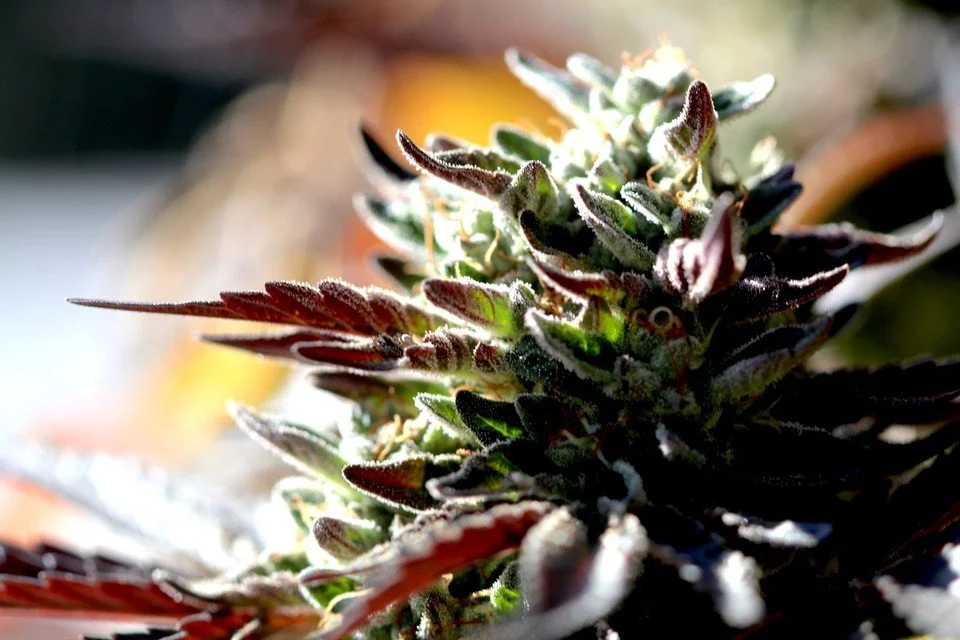Part of our passion at Giving Tree Farms lies with finding creative ways to boost our sustainability and efficiency. And much like Lean Manufacturing, we work to achieve “Lean Cultivation,” an application that reduces our waste through our cultivation procedures without sacrificing efficiency and productivity. Every area of our operation ties in methods that reduce, reuse, or recycle our waste, from the garden to the processing room and all the way into the administration office. Lean Cultivation is a fully immersive approach to operating our business, one that is great for the environment and our achievement of such high-quality cannabis.
The Importance of Cannabis Canopy Management
If you’re wondering how to keep densely stacked flowers from falling over, how to improve yields, or how to ensure the best crop, it’s time to look up—up to the canopy. Simply put, successful cannabis cultivation can be thwarted by improper consideration of canopy growth. If it’s neglected, it can take a toll come harvest time.
Personalizing Sustainable Cultivation
Sustainable cultivation comes in many forms, each uniquely beautiful in its own way. This is because being sustainable means working with your land and adjusting your approach to serve its needs. From the soil you grow within to the average cloud coverage in the sky, understanding your microclimate is key to creating a sustainable garden that is perfect for your particular space.
A New Beginning: Our Off-Grid Journey
We started our solar journey by signing up for Sonoma Clean Power as our source of grid energy. This program guaranteed that all of our energy use was obtained from renewable sources, like solar and wind energy. But where this came up short was during California's rolling blackouts throughout the fire season. As a cannabis cultivator, fire season takes place during our fall cultivation cycle, harvest, and through part of processing, when it's absolutely imperative that we have electricity for irrigation, humidity and temperature controls, and security measures. When we process fresh-frozen harvests, this adds an even more critical need for continuous power. Otherwise, we could lose our entire crop. We knew we needed to take matters into our own hands or possibly face an uncontrollable fate. This thinking was the start of our off-grid solar journey.
Smart Farming: Customizing Your Garden
A smart farm starts with a smart design, and new technologies can help us create a plan that maximizes efficiency and encompasses sustainability, all while keeping our unique land restrictions in mind. Regardless of the crop(s) we decide to grow, taking the time to ensure our garden will be able to operate at peak performance will prove beneficial. The future of agriculture relies on efficiency, and with a little brainpower and help from technology, even small, personal gardens can enjoy the advantages of a well-designed cultivation space.
Smart Farming - Its Effect on Cultivation Efficiency and Sustainability
Working on farm efficiency requires trying to look at a familiar issue through an unfamiliar lens. It’s vital to question standard practices in order to develop innovative “smart” farming alternatives. Smart farming is an evolving strategy that can benefit many parts of a farmer’s operation, regardless of the crop they are cultivating. Through the use of data collection, we can recognize inefficiencies throughout the season, allowing us to improve the following cycle, reduce our impact on the environment, and increase our transparency with customers.
De-Bunking the Mixed-Light Myths
Conflicts of perspective can occur even in the most like-minded communities. When people are passionate about a cause, it’s sometimes easier to put blinders on than to accept facts and data that contradict our worldview. A version of this head-in-the-sand scenario is currently playing out in the California cannabis industry, specifically around the subject of mixed-light grow operations.












